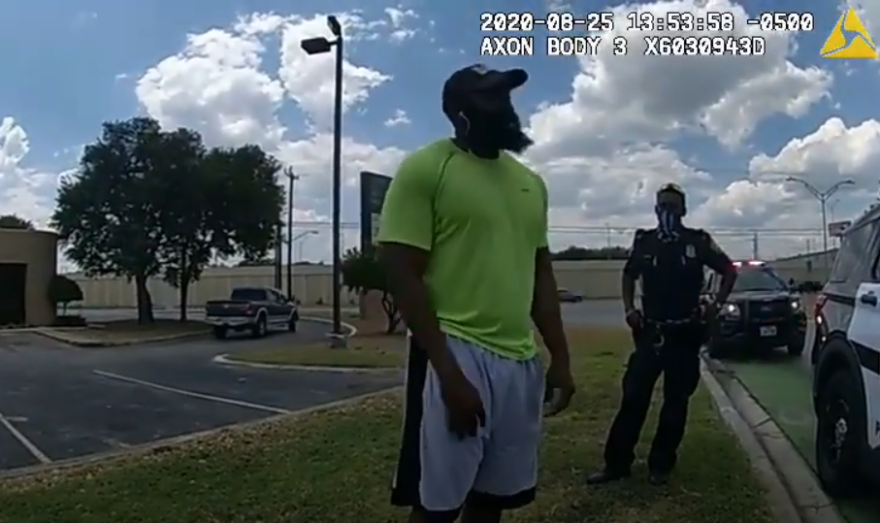A new policy would require the San Antonio Police Department to release body cam footage in 60 days or provide a statement if the chief decides not to release the footage.
The policy applies to videos the department deems as a “critical incident” and sets the timeline for review and public release. Either the video or statement would be posted on SAPD’s website after a decision on the release. The revision comes after public demands for video of incidents that resulted in death at the hands of SAPD officers continue.
On Tuesday, San Antonio Police Chief William McManus told the San Antonio City Council’s Public Safety Committee the new policy would take effect on Monday.
“I have always had the authority to release body-worn camera video, so this simply establishes that policy and how it will govern the process,” McManus told the committee.
SAPD defines “critical incidents” as ones that involve police shootings or use of force that result in death or serious bodily injury. It doesn’t allow the release of video for domestic violence incidents and video involving juveniles.
McManus said the creation of the policy included a review of other major cities and state law. Austin has a release policy of 60 days while Dallas has a 72-hour release policy. Under state law, video of a police incident cannot be released if it’s under criminal or administrative investigation.
Several people or entities would be alerted 72 hours prior to the release, including the officers involved, the person force was used upon, legal representatives, next of kin, the city manager, city attorney and district attorney.
McManus said the policy will not work reactively to include videos taken prior to the effective date.
“If we started to get a flood of requests for videos, we’d have to get new staff or additional staff to do that. If not, it’s just a matter of grabbing the body cam video and putting it up online,” McManus said.
District 2 Councilwoman Jada Andrews-Sullivan and District 3 Councilwoman Rebecca Viagran asked about family access to videos that are not publicly released. McManus said it’s possible for family members to see recorded footage before public release.
Both councilwomen also expressed concern about the narrative and transparency when it comes to videos edited and released by the department.
McManus said there are two factors when it comes to preparing a video for public release.
“First of all it has to be redacted by law in most instances, and number two, if one was to watch this video without some sort of explanation as to what’s happening the person watching it would completely miss key points of the video.”
Andrews Sullivan responded:
“That does bring a lot of hesitancy when it comes to (questions like) are we getting the full picture, is this exactly what happened, has something been taken out and was this at a time when the camera turned off,” Andrews Sullivan said. “Those are the questions that come up when we talk about it and I think that more education does need to go behind the legality of buying more cameras and how we can present this information in true transparency to the communities.”
The policy did not win over the support of citizens who spoke at the meeting. Silvia Lopez, a District 1 resident, called it “absolutely nothing.”
“A policy that tells people that they need to wait 60 days for a decision on whether or not SAPD will be transparent is beyond insulting,” she said. “Why even bother having body cameras if you don’t make any of the footage they record available.”
Many those speaking paid note to the length of time it has been since Darrell Zemault Sr. was killed by a SAPD officer on Sept. 15 and a video had not been released.
Most recently, SAPD released body cam footage of the arrest of Mathias Ometu who was questioned by officers investigating a domestic violence incident in August. Ometu was not the person who the police were searching for. McManus said that video was released in the essence of transparency.
TPR was founded by and is supported by our community. If you value our commitment to the highest standards of responsible journalism and are able to do so, please consider making your gift of support today.


